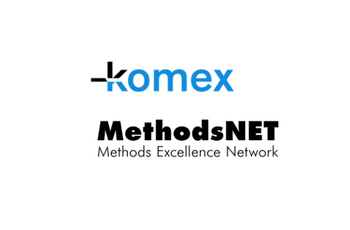Thank you for your message. The IPPA team will get back to you shortly. You first need to login here.



KOMEX-Konstanz Methods Excellence Workshops
Organized by the University of Konstanz in collaboration with methodsNET
The KOMEX workshops offer cutting-edge, inclusive, and affordable methodological training in both qualitative and quantitative research design and techniques for PhD students and postdocs. Courses take place from March 11-12 (On-line preparatory course) and March 14-18, 2022 (in-person and on-line main courses at 4 ECTS) at the University of Konstanz, Germany—beautifully situated at Lake Konstanz, close to the Alps, near the borders to Switzerland and Austria.
A basic introduction to R for beginners (10.-11.3.2022; on-line, live; only for attendants of one of the main courses) taught by Eva Thomann
This 2-day virtual short course, which is open to participants of one of the main KOMEX courses, provides a basic introduction to the open-source statistical software R for beginners. It teaches you the basics of R the environment and functionality, how to „talk“ to R, dealing with datasets, and simple descriptive stats and graphs using R.
Comparative Case Study Design (14.-18.3.2022; in-person) taught by Eva Thomann
This five-day, in-person main course provides you with the skills needed to design your qualitative comparative case study research. The course covers the topics of causal complexity, concept formation, casing and case selection, logics and strategies of comparison, accounting for context and time, choosing data collection and analysis strategies, as well as conceptual and research-practical issues.
Causal inference and observational research – designing robust counterfactuals (14.-18.3.2022; in-person) taught by Christina Zuber
This course provides you with the skills to design and conduct a robust social scientific research project that links sound theorizing to causal inference based on observational data—whether qualitative or quantitative. Making the most of the experimental turn, we learn how to adapt its counterfactual view of causation to working with observational data under imperfect, real-world conditions.
Crowd-sourced Text Analysis (14.-18.3.2022; in-person) taught by Alexander Horn and Martin Haselmayer
The five-day in-person course provides you with the skills needed to design and conduct your own crowd-sourced text analysis project. Crowd-sourced text analysis allows for fast, affordable, valid, and reproducible online coding of very large numbers of statements by collecting repeated judgements by multiple (paid) non-expert coders.
Virtual course: Introduction to Qualitative Comparative Analysis using R (on-line;-partly asynchronous, partly live) taught by Eva Thomann
This virtual main course introduces you to the nuts and bolts of Qualitative Comparative Analysis (QCA). We will use real-world data to replicate a published study, work with examples from the participants’ own research projects, and introduce you to performing QCA with the freely available R software.
All courses are taught in English. The maximum number of participants per course is 20. You can register by selecting a specific course via this link. The following fees and deadlines apply:
| Type of course | Eligibility | Early bird fee (in €) Until 14.2.2022 23.59h CEST | Regular fee (in€) From 15.2.2022 |
| Short preparatory course (10-11.2.2022) | Participants of main course | N/A | 90 |
| Main course (14-18.3.2022) | Maximum 5 PhD students enrolled at the University of Konstanz/course | 0 | 0 |
| All other participants | 390 | 430 |


Thank you for your message. The IPPA team will get back to you shortly. You first need to login here.